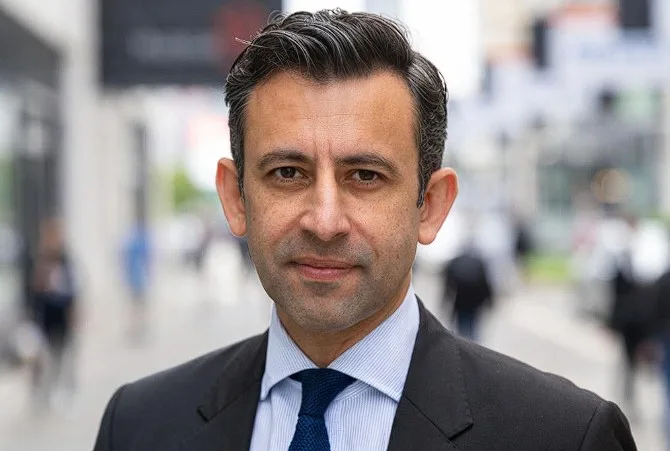
three reasons the ps5 star wars: kotor remake is such a huge …
June 7, 2025
how does planning and saving for your future help you build wealth?
June 7, 2025Hello, have you ever considered saving your birthday money or weekly allowance? Perhaps you’d like to use it all for candy or a new toy immediately. That’s exciting, but what if you never learn how to save when you’re young? what are some long-term consequences of not learning to save while you’re young? If you don’t save, then it can lead to huge issues when you’re older. Let’s discuss the importance of saving and what will happen if you don’t start early on. We’ll use simple words so that everyone can follow, just like if we were speaking in the school playground!
Why Saving Money Matters When You’re Young
When you’re young, money may appear to be only for the purpose of purchasing cool things, such as ice cream or video games. Saving money, however, is planting a seed that will become a large tree in the future. Unless you start learning how to save while you’re young, it’s difficult to have money for essential purposes when you’re older. So, what are some long-term consequences of not learning to save while you’re young? Well, you may not have sufficient funds for things such as a car, a home, or even enjoyable items such as traveling on a vacation.
Saving is practicing for a game. If you practice it now, you will be great later. However, if you do not practice, you may not be prepared when the big game arrives. Let’s consider some of the ways failing to save can get you into trouble as an adult.
Missing Out on Big Dreams
Another huge answer to what are some long-term consequences of not learning to save while you’re young? is that you may not be able to turn your dreams into reality. Suppose you really need a nice bike or want to attend a great camp. If you spend all your cash upfront, you’ll have nothing left to save for those big items. When you’re older, your dreams get even bigger—like going to college, buying a car, or traveling to cool places.
If you do not learn to save money when you are little, you may not know how to save money for those big dreams when you are older. For instance, college is very expensive. If you don’t save, you may have to borrow money, and then you will owe even more down the road because of something called “interest.” That’s like extra money you have to repay. So, not saving can make it more difficult to pursue your dreams without having to worry about money.
No Money for Emergencies
Another response to what are some long-term effects of not learning how to save when you’re young? is that you may not be prepared for emergencies. Life is like a surprise pop quiz—you never know when something will crop up. Perhaps your bike is broken, or your dog becomes ill and requires a vet. If you don’t have any savings, you may not have enough money to repair those issues.
When you’re older, emergencies can be even larger, such as if your vehicle malfunctions or you lose a job. If you don’t have money saved, you may need to borrow cash or find someone to lend it to you, which is really stressful. Saving when you’re younger allows you to establish a “rainy day fund” to use when things become difficult.
Getting Stuck in Debt
Debt is a large term, but it simply refers to owing someone else money. what are some long-term consequences of not learning to save while you’re young? One of the largest issues is becoming trapped in debt. If you use all your money and don’t save any, you may begin to use a credit card to purchase items. A credit card is essentially borrowing money, yet you must pay it back with additional funds referred to as interest.
For instance, suppose you badly need a new phone but do not have sufficient funds. If you purchase it on a credit card and do not immediately pay back the amount, you will owe more than the cost of the phone. If you continue to do so, the debt can snowball like a snowball gaining size by running down a hill. Failing to learn how to save in early life makes it easier to get caught in this vicious circle, and you find it difficult to get out.
Missing Out on Growing Your Money
Did you know that your money can grow when you keep it saved? It is true! what are some long-term consequences of not learning to save while you’re young? One of them is missing out on growing your money. If you save money in a bank, it can grow through something called interest. That is like a small bonus the bank pays you for letting them hold your money.
There is also this thing called “investing,” where you spend your money on items like stocks that increase in value over time. If you save early, your money gets more time to grow. For instance, if you save $100 when you’re 10 and it increases a bit every year, it may be much more when you turn 30. But if you don’t save, you lose the opportunity, and that’s a huge consequence.
Worrying Over Money Every Day
No one likes to be anxious, right?what are some long-term consequences of not learning to save while you’re young? A large one is being continually worried about money. If you don’t save money, you may not have enough to buy things you need, such as food, clothing, or a home. This can make you nervous or sad because you worry all the time about how you will pay for things.
When you’re young, it’s okay to begin small, say by putting aside a dollar from your allowance every week. That teaches you how to budget and be at peace with money. If you don’t learn this though, you may end up growing up constantly stressed, and that’s not cool.
Not Being Prepared for Retirement
Retirement may seem like something really far in the future, but it’s when you’re older and no longer work. What are some long-term effects of not learning how to save when you’re younger? One is not being prepared for retirement. When you retire, you have to have money to live because you’re not working anymore. If you don’t save, you may not have enough to enjoy your life or even buy simple things.
Saving early will give you a head start. Saving even a small amount now can pay a big dividend later. But if you do not learn to save, you may have to work longer or struggle when you are old, and that is not a good way to live.
How Not Saving Impacts Your Options
What are some long-term effects of not learning how to save when you’re young? Another huge one is that it can restrict your options. When you have savings, you’re able to choose what you want to do, such as go on a cool vacation or start a new hobby. But if you don’t have savings, you may feel like you don’t have any options. For instance, if you wish to relocate to another city or become an entrepreneur, you require money to achieve this. Without savings, those aspirations may remain beyond your reach.
Saving provides you with autonomy to make choices without anticipating money. Failure to learn to save when you are young may complicate matters, making it difficult to have this independence in the future.
Hurting Your Relationships
True or not, money can influence your family and friends. What are some of the long-term effects of not learning to save when you are young? One is that it can create issues with the people you love. If you do not have savings and always borrow money, your friends or family members may become angry. They may not lend you money, and that can be embarrassing.
Also, if you have a family later, like getting married and having children, not saving can make it difficult to provide for them. You may fight about money, and no one enjoys that. Saving while you’re young keeps these issues from happening and maintains healthy relationships.
Not Learning to Be Responsible
Saving money is not only about dollars and cents—it’s about being responsible. What are some of the long-term effects of never learning to save when you’re young? If you never learn to save, you may not learn to make good money choices. Being responsible with money is about considering what you need, and not merely what you happen to want at the moment.
For instance, if you habitually use all your money on toys or snacks, you might not have any left for something meaningful, such as school supplies. When you grow up, this behavior can make it difficult to afford things like rent or bills. Saving money at an early age helps you learn to plan and be responsible, which will benefit every area of your life.
Missing Out on Helping Others
Saving money isn’t for you alone—it can benefit others as well! What are some of the long-term effects of not saving when you’re young? One is that you may not have money to share with people who are in need. Perhaps you’d like to donate to a charity, assist a friend, or purchase a gift for someone special. If you don’t save, you may not have enough to share.
When you know how to save, you can spend your money on making the world a better place. For instance, you can donate to a food bank or assist a family member. If you don’t save, you may lose these opportunities to be a good person.
How to Start Saving When You’re Young
Now that we’ve talked about what are some long-term consequences of not learning to save while you’re young?, let’s talk about how to start saving. It’s not hard, and it can be fun! Here are some easy tips:
Get a Piggy Bank: Put your allowance or birthday money in a piggy bank. Even saving a little each week adds up!
Set a Goal: Choose what you want to save for, such as a new toy or vacation. This makes saving fun.
Ask Your Parents or Teacher: Discuss saving with your parents or a teacher. They can teach you how to record your money.
Don’t Spend All Your Money: Make an effort to save some of your money rather than spending it all at once.
By beginning small, you’ll become an expert at saving, and you’ll escape the issues we discussed.
Why Starting Early Makes a Difference
What are some long-term effects of not learning to save while you’re young? We’ve seen that it can get you into lots of trouble, such as not having money for emergencies, getting you bogged down in debt, or depriving you of your dreams. The good news is that saving when you’re young puts you at a huge advantage what are some long-term consequences of not learning to save while you’re young?
If you save early, your funds get more time to develop. It’s similar to growing a tree—if you plant the tree early, it grows larger. And saving is also a way of learning how to be financially smart so that you’ll be prepared for anything life throws at you.
Real-Life Examples of Not Saving
Let’s look at some stories to understand what are some long-term consequences of not learning to save while you’re young? Imagine a kid named Alex who always spent his allowance on candy and games. When he grew up, he kept spending everything he earned. One day, his car broke down, but he didn’t have any savings. He had to borrow money, and now he’s paying it back with interest, which makes him stressed.
Now consider Sarah, who learned to save money when she was young. She saved some of her birthday money in a saving account. When she became an adult, she had enough money to buy a car without having to borrow. She is happy and carefree because she doesn’t owe anyone money what are some long-term consequences of not learning to save while you’re young?
These stories demonstrate how learning to save can make life less stressful and easier.
How Not Saving Affects the Future
what are some long-term consequences of not learning to save while you’re young? Let’s sum it up. Not saving can mean:
Not having money for big dreams like college or a house.
Being unprepared for emergencies, like a broken car.
Getting stuck in debt that’s hard to pay off.
Missing out on growing your money through interest or investing.
Feeling stressed about money all the time.
Not being ready for retirement.
Having fewer choices in life.
Causing trouble with your friends or relatives.
That’s a lot of trouble! But don’t worry—you can avoid all of this by beginning to save right now.
Tips for Parents to Teach Kids About Saving
If you’re a child, you can have your parents assist you in saving. If you’re a parent, I’ve provided some ideas for teaching your children about saving so they don’t have the query, what are some long-term consequences of not learning to save while you’re young?
Give an Allowance: Provide your children with a little bit of money to take care of.
Teach Budgeting: Teach them how to divide their money into saving, spending, and giving.
Open a Savings Account: Go with them to the bank to open their own account.
Make It Fun: Use a game or a chart to monitor their savings target.
Teaching children to save is like teaching them to ride a bike—it’s practice, but it’s worth it!
Why We All Need to Care About Saving
What are some long-term effects of not learning how to save when you’re young? We’ve discussed many reasons why saving is beneficial. It’s not money—it’s living better. When you save, you feel more secure and less anxious. You can pursue your dreams, assist others, and be prepared for surprises.
If you don’t learn to save at a young age, it’s like playing a game without knowing the rules. You may still manage, but it’s much more difficult. Starting early makes everything simpler and more enjoyable.
Wrapping It Up
So, what are some long-term consequences of not learning to save while you’re young? Failing to save can result in the loss of dreams, being trapped in debt, being stressed, and failing to be prepared for emergencies or retirement. It can even impact your decisions and relationships. But the best part is that you can begin saving today, even if it’s just a tiny amount. Every penny you do save is like a move in the right direction toward a better life.
Whether you’re a child with a piggy bank or an adult who wished you had saved more, it’s never too early. But the sooner you start, the better you can steer clear of all those big issues we discussed. So, get a jar, begin to save, and watch your money multiply!




